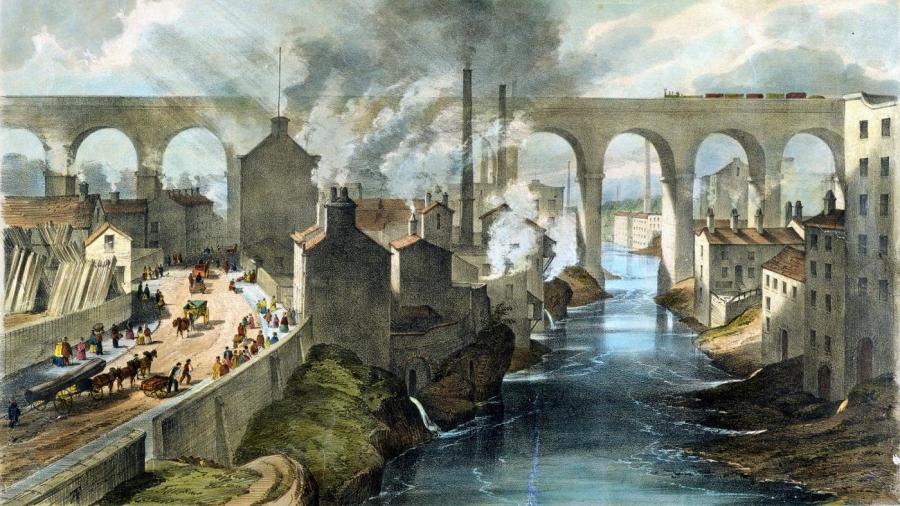What Was the Importance of the Industrial Revolution?

The Industrial Revolution was important because it changed every aspect of life and business in Britain. With the birth of the Industrial Revolution, formerly rural areas quickly became urbanized hives of industry.
The Industrial Revolution brought advances in technology, shipping, science, agriculture and construction. Additionally, as Britain became a major technologically-advanced center of production and commerce, the economy grew in strength, and Britain became a wealthier country as a result.
In agriculture, the Industrial Revolution gave rise to an increased demand for crops, as the population expanded rapidly. New technologies, including tools, machinery, techniques and fertilizers developed quickly, increasing crop yields and agricultural productivity. Before the Industrial Revolution, nobles owned land and the tenants worked the land, growing everything required to support themselves and their Lords. However, the Industrial Revolution brought change, and different areas and estates began to specialize in the crops or animals they farmed. For example, the East of England specialized in grain crops while Scotland focused on rearing cows and sheep. This led to increased commerce and economic diversity, increasing trade.
The increase in industry hugely increased foreign trade and introduced mass production, moving manufacturing away from handmade goods and cottage industries into large-scale factories. Technological innovations occurred rapidly, with improvements to existing technologies and brand new technologies increasing the efficiency of production.





